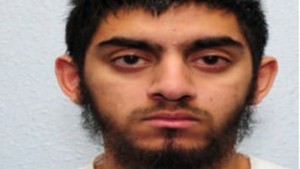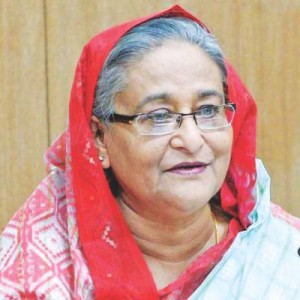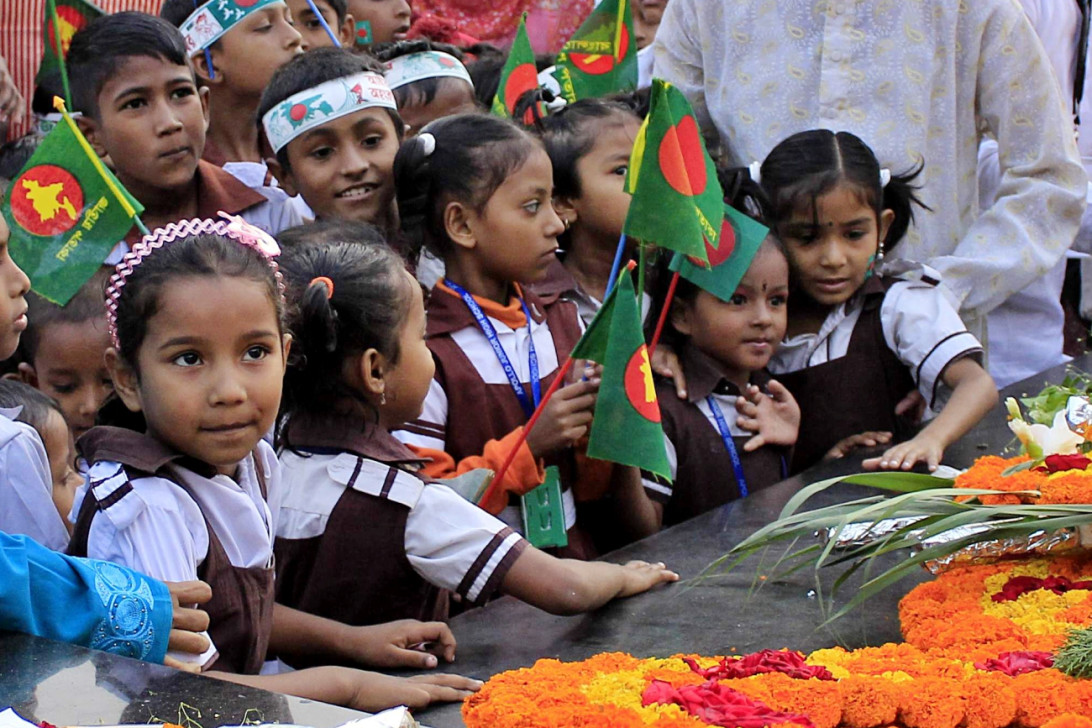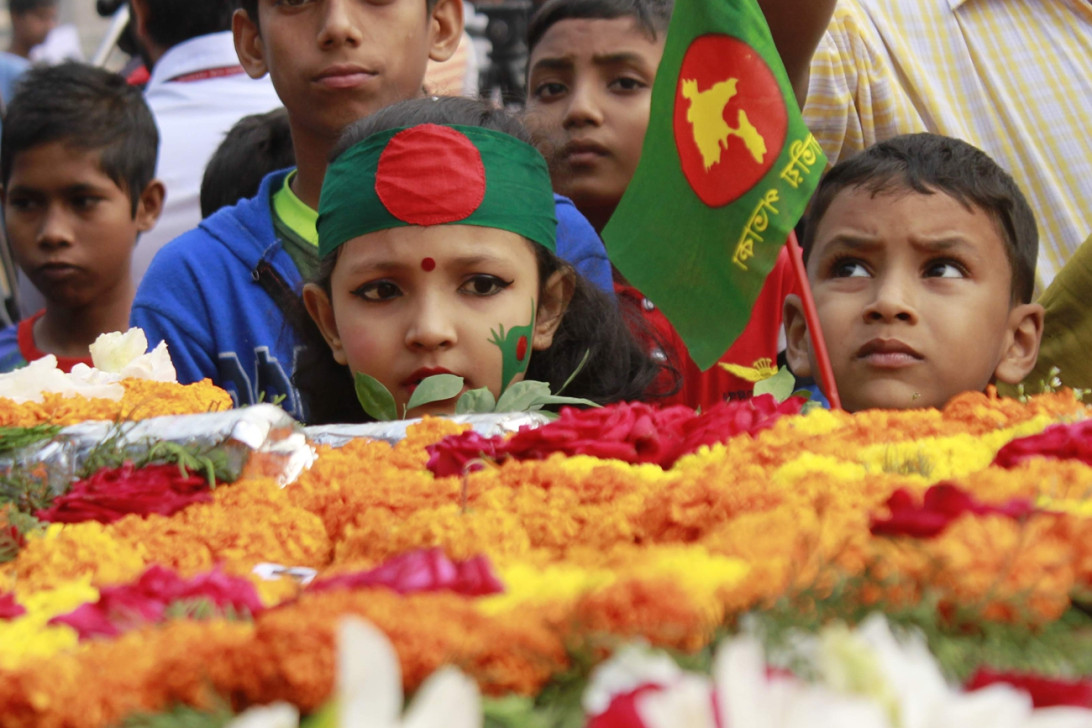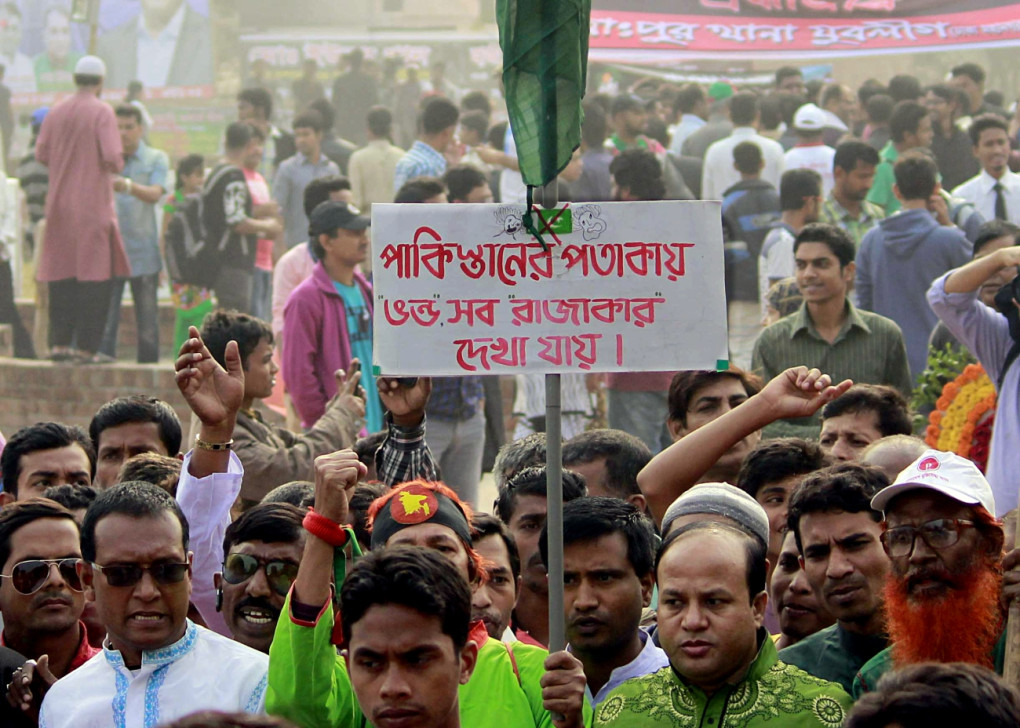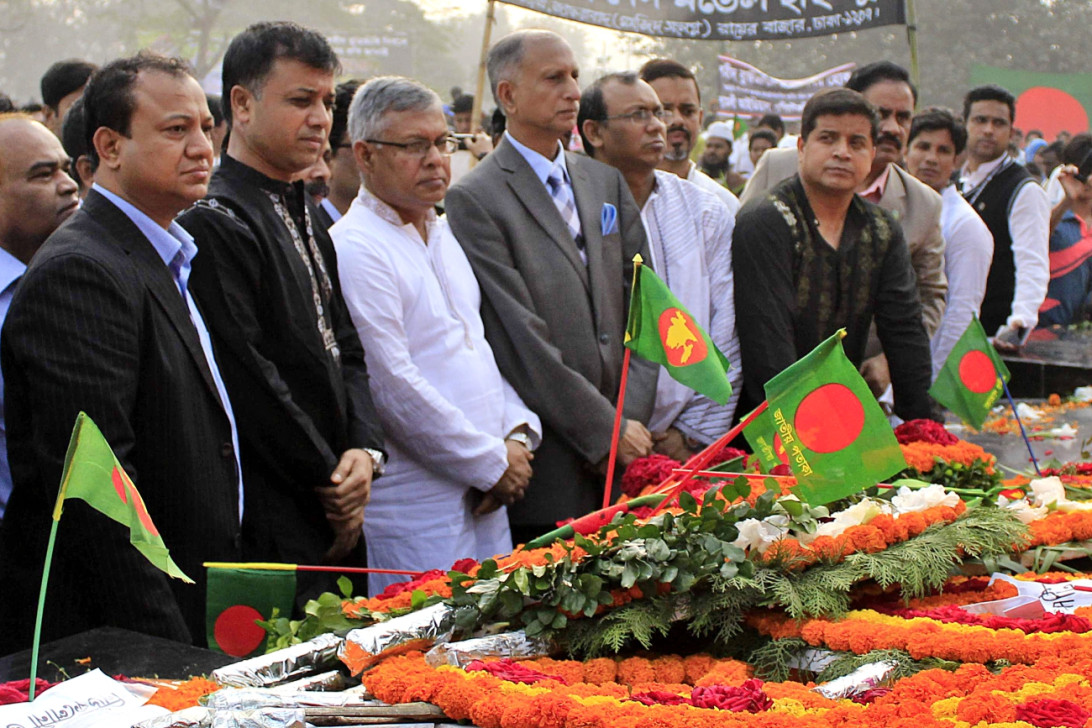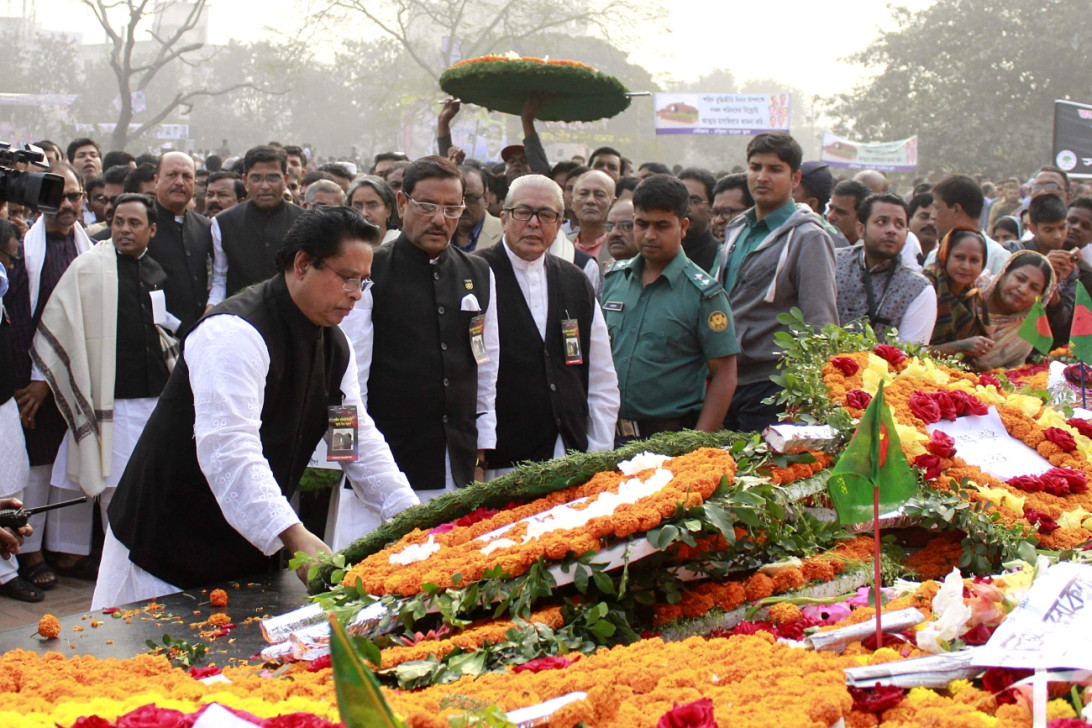Observance of the Martyred Intellectuals Day was markedly different this year.
The day was observed yesterday with a renewed demand for banning Jamaat-e-Islami, and a call to severe ties with Pakistan for denying the atrocities it had carried out during the 1971 Liberation War.
People from all ages and professions, including family members of the martyred intellectuals, thronged the Martyred Intellectuals’ Memorial at Mirpur and the Rayerbazar Mausoleum, with different cultural and political organisations placing wreaths at the altars.
The nation, for the first time this year, saw the execution of a war criminal, Ali Ahsan Mohammad Mojaheed, Jamaat leader and a top brass of Al-Badr, for the killing of intellectuals in 1971.
Dr Nuzhat Choudhury Shampa, daughter of martyred physician Dr Abdul Alim Chaudhury, said, “This year’s December 14 is different because the nation saw the hanging of Al-Badr commander Mojaheed. We are hopeful that the government will try the remaining war criminals.”
A diplomatic spat soon followed between Bangladesh and Pakistan over the execution of Mojaheed with Pakistan summoning the acting high commissioner of Bangladesh in Islamabad to deny the atrocities it had committed in 1971.
People from all walks of life yesterday expressed their outrage at Pakistan’s denial.
When the Pakistani occupation forces were certain about their defeat, they, aided by local collaborators, particularly the Al-Badr, abducted the country’s brightest minds and killed them, often after brutal torture, in an effort to cripple the emerging nation intellectually.
After the butchery, the bodies were left to rot in the killing fields.
Talking about Pakistan’s outright lies, Maj Gen (retd) KM Safiullah Bir Uttam, chairman of Sector Commanders Forum (SCF), said, “Bangladesh should cut all ties with Pakistan until it seeks apology for its recent statement.”
Later, the SCF handed over a protest letter to the Pakistan High Commission in Dhaka, demanding an unconditional apology from Pakistan for the barbarity of its forces in 1971.
Awami League Joint General Secretary Mahbubul Alam Hanif said the relationship with Pakistan had been severed in 1971.
A huge number of students from different schools and colleges too gathered at the memorial sites. Many children came with their parents.
A mock mass killing of intellectuals was staged afterwards. An exhibition of photographs on 1971 and paperclips attracted people’s attention at the Rayerbazar graveyard.
DU CUTS ACADEMIC TIES WITH PAKISTAN
Dhaka University severed all academic ties with Pakistan from yesterday for the country’s denial of the genocide committed in 1971.
The decision came yesterday at an emergency syndicate meeting with Vice Chancellor Prof AAMS Arefin Siddique in the chair at Nabab Nawab Ali Chowdhury Senate Bhaban.
From now on, teachers, students and representatives from the DU will not be able to go to any Pakistani institutions and the university will not accept any representatives from the country for academic purposes.
“Dhaka University bears evidences of the atrocities, which are available in the archives of many foreign universities, international media, yet Pakistan keeps lying,” he said.
The DU VC also demanded the trial of 195 Pakistani army officers who had committed many crimes in 1971.
President of Federation of Bangladesh University Teacher’s Association (FBUTA) Prof Farid Uddin Ahmed said they would hold meetings with the entire public university teachers’ associations to severe academic ties with Pakistan.
Meanwhile, Civil Aviation and Tourism Minister Rashed Khan Menon said the government, if necessary, would go to the international court demanding the trial of the 195 Pakistan army persons who had committed war crimes.
At a programme at Dhaka Reporters’ Unity yesterday, he said Pakistan was bound to bring the 195 Pakistan army personnel under trial following the Shimla agreement.
MIRPUR MAUSOLEUM
President Abdul Hamid and Prime Minister Sheikh Hasina paid their tributes to the martyred intellectuals by placing wreaths at the Martyred Intellectuals Memorial at Mirpur, reports UNB.
President Abdul Hamid placed wreaths at 8:00am followed by the prime minister. They stood there in solemn silence for some time.
A contingent of Bangladesh Armed Forces gave a state salute as the bugle played the last post.
After placing wreaths, the president talked to war-wounded freedom fighters and family members of the martyred intellectuals there and inquired about their well-being.
She too talked to the war-wounded freedom fighters and inquired about their well-being.
BNP Chairperson Khaleda Zia paid her tributes at the memorial at 10:20am.
Cabinet ministers and political leaders also paid their homage to the martyred intellectuals at the memorial site.
